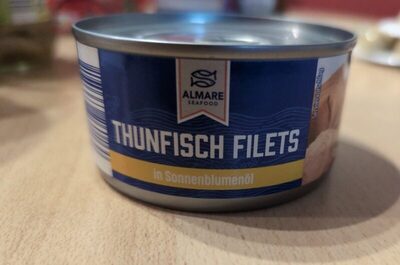
Barcode: 4061462633591
Thunfischfilets in Sonnenblumenöl
HALAL
📝 Reason: All ingredients in the product are considered Halal. Fish is permissible to eat according to Quran 5:96, and plant-based oils and salt are also Halal. There are no Haram ingredients or doubtful substances present in the product.
📄 Certificates: None
Ingredients:
Details
Understanding the Halal Status of Thunfischfilets in Sonnenblumenöl
When it comes to dietary requirements, especially for those following Islamic guidelines, understanding the Halal status of food products is crucial. In this post, we delve into the Halal status of Thunfischfilets in Sonnenblumenöl, examining its ingredients, E-numbers, and relevant certifications.
What Makes Thunfischfilets Halal?
The product Thunfischfilets in Sonnenblumenöl is confirmed to be Halal. All of its ingredients—Thunfisch (tuna), Sonnenblumenöl (sunflower oil), and Kochsalz (table salt)—are permissible under Islamic dietary laws. According to Quran 5:96, the consumption of fish is viewed as Halal, making tuna a suitable choice for those adhering to Halal dietary principles.
Ingredient Breakdown
Let’s take a closer look at the individual components of the product:
- Thunfisch (Tuna): This fish is considered Halal. Generally, it is permissible to eat fish in Islam as long as it is not harmful or intoxicating. The Arabic source from Quran 5:96 reinforces this view, making tuna a Halal staple for many.
- Sonnenblumenöl (Sunflower Oil): This vegetable oil is plant-based and is also classified as Halal. According to general Islamic dietary guidelines, plant-based oils are widely accepted in Halal diets.
- Kochsalz (Table Salt): Salt itself is a mineral and poses no Halal concerns. Thus, it is universally accepted in Halal diets according to Islamic dietary laws.
What Are E-Numbers?
Many consumers nowadays are curious about E-numbers in their food. These numbers represent food additives that have been assessed for safety and are approved for use in the European Union. In the context of Thunfischfilets in Sonnenblumenöl, there are no specific E-numbers associated as the ingredients are straightforward and natural. However, it’s still useful to clarify that:
- All the ingredients utilized, including Thunfisch, Sonnenblumenöl, and Kochsalz, stand clear of any dubious or Haram additives.
Steering Clear of Haram Ingredients
It is vital to note that Thunfischfilets in Sonnenblumenöl includes no Haram ingredients. Ingredients that are common in many other food products, such as gelatin or alcohol, are absent, reinforcing its Halal status. Consumers can enjoy this food product with confidence knowing that it aligns with Islamic dietary regulations.
Brand and Certification Context
Currently, there are no specific certifications listed for Thunfischfilets in Sonnenblumenöl. Nevertheless, the ingredient sources provide assurance regarding its Halal compliance. It is good practice for consumers to check for Halal certifications, especially when purchasing from brands or products unfamiliar to them.
Conclusion
In summary, Thunfischfilets in Sonnenblumenöl is Halal due to its basic yet permissible ingredients. The rigorous guidelines of Halal dietary laws are fulfilled, making it a safe and enjoyable choice for those who follow these practices. Whether you’re looking for a quick snack or a meal component, this tuna product offers both nutrition and peace of mind regarding Halal compliance.

